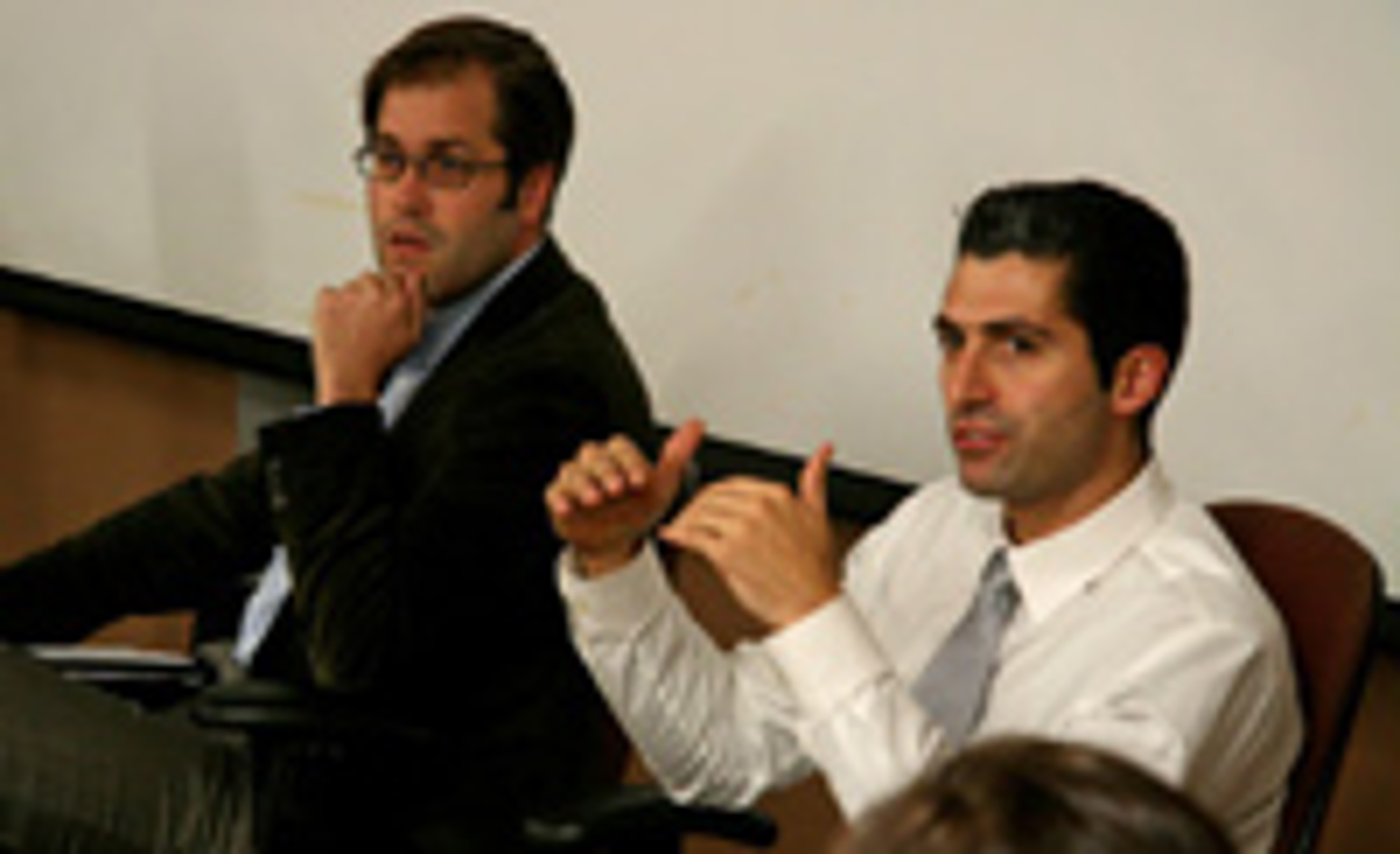The second segment of a two-part debate called "Occupy Wall Street" held yesterday at Ivey involved a panel discussion with Ivey Assistant Professors Niels Billou, Michael King, Brian Richter and Mike Valente on the Occupy movement's relevance to business schools. The event was organized by HBA Association Environmental Directors Devon Krainer and Tasha Sangha, Ivey Political and Economic Issues Club Co-Presidents Ross Strike and James Malone, and HBA Ivey Sustainability Club Co-Founders Lucy Gao and Nicole Harvey.
The Occupy movement is an international protest movement, which began in September with the Occupy Wall Street protest in New York, directed against social and economic inequality, high unemployment and the undue influence of corporations on government.
The debate discussion focused on whether capitalism is a driver of inequality, whether or not the movement might be effective in creating change, and what role business schools play in developing socially conscious business leaders.
While King acknowledged there is a flawed "individualistic form of capitalism" in the U.S. and called for a system where governments can better redistribute wealth, Valente countered that government regulation isn't enough because many big companies influence government.
"Things are getting out of control because we are relying too much on certain kinds of actors who have a large amount of power," he said.
Billou said capitalism has become a dirty word because there has been too much focus on maximizing profit and companies only focus on financial profit.
"We need to bring in the notion of the triple bottom line, which involves people, planet and profits," he said. "Companies should be vetted to ensure they have the ability to both contribute to society and make a profit - and the percentage of profit should be in the single digits only... We are one society and we should work together as one society to create value for all."
Richter said business schools have the responsibility to help develop socially conscious business leaders equipped with analytical tools that enable them to see various sides of a problem.
"We need to teach people to be analytical thinkers and they will make the right decisions," he said.
Earlier this month, a student debate organized by the Ivey Political and Economic Issues Club focused on the growth of the Occupy movement, viability of the protests and how executives should respond to the protests.
